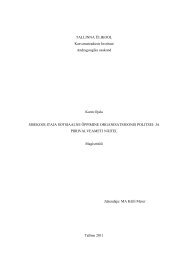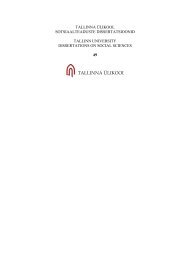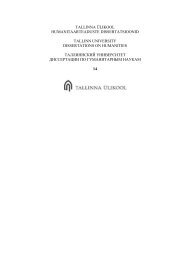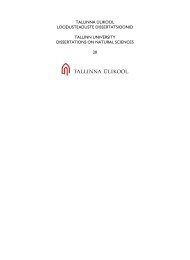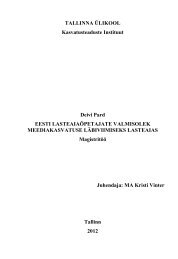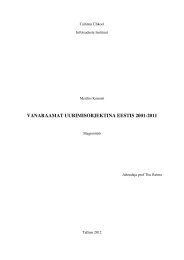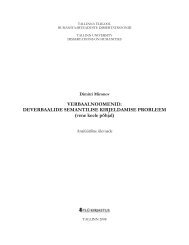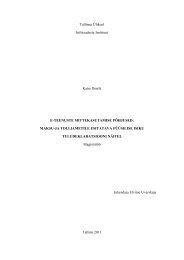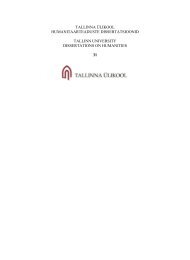Download (1157Kb) - E-Ait
Download (1157Kb) - E-Ait
Download (1157Kb) - E-Ait
You also want an ePaper? Increase the reach of your titles
YUMPU automatically turns print PDFs into web optimized ePapers that Google loves.
departments to allow knowledge flow irrespective of employees attachment and job<br />
functions, then silos may be created and competition is the likely consequence than<br />
cooperation. At this juncture departments may concentrate on their own departmental<br />
accomplishments rather than collective problem solving.<br />
Tanzania public university libraries need to turn into learning organisations. This suggests the<br />
need to adjust their structures to put more emphasis in learning through knowledge creation<br />
and sharing rather than reinventing wheels. Restructuring involves distribution of power<br />
where library leaders need to be more facilitators than directors. This goes along side with<br />
culture change where the core values and visions of the organisations are restructured to<br />
reflect the importance of creating and sharing knowledge. Among other things job<br />
descriptions should help libraries to relate skills and support communities of practices.<br />
Working in groups needs to be encouraged to facilitate interaction and collaboration in<br />
attending work related to the groups.<br />
Learning organisations are promoted by technological infrastructure. Knowledge workers<br />
need to be connected with other knowledge workers and most important to be connected with<br />
the information. Knowledge transfer and dissemination is supported by well laid IT<br />
infrastructure. It may not be feasible to suggest the acquisition of new IT infrastructures such<br />
as high speed computers and collaborative work tools such as videoconference tools and<br />
projectors in not for profit organisations like libraries. It is even worse for university libraries<br />
which depend on the university budgetwise. However, there is a strong need for the<br />
infrastructure available to be put to use effectively. Findings suggest that only three<br />
respondents admitted passing information to others in workplaces via the internet.<br />
The knowledge economy requires the library to realise the increased need to create a structure<br />
which will allow more use of the valuable knowledge in the heads of their employee.<br />
Networks of teams should replace traditional hierarchies and knowledge should become the<br />
main organizational resource. This way libraries are likely to use their employees‟ talent as<br />
part of a competitive strategy to create, share and utilize information created to gain more<br />
competitive advantage.<br />
59





